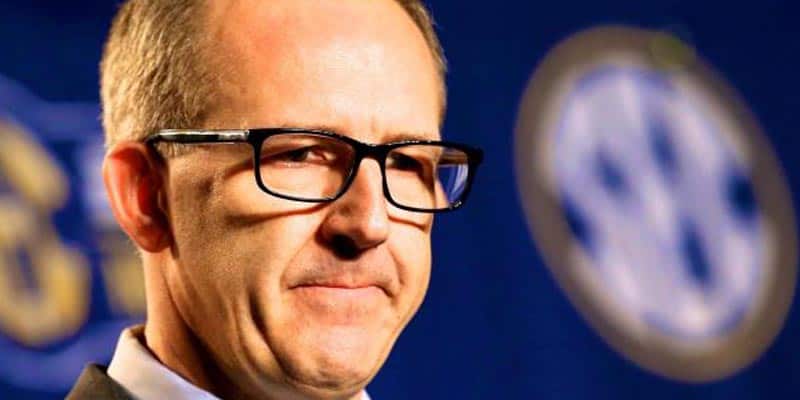With legalized sports gambling spreading throughout the United States, the commissioner for the nation’s premier college football conference took the podium Monday during the first SEC media day to present his case on how it could negatively affect the mental health of student-athletes.
According to SEC Commissioner Greg Sankey, mental health is an issue athletes now bring up more than limited campus parking.
“We’re seeing trends in the mental health area that should cause us all to pause before these ideas around specific event betting within college sports are allowed to take place,” Sankey said in Hoover, Alabama earlier this week.
The commissioner also expressed his desire for uniform practices surrounding collegiate sports betting, including the elimination of in-game and proposition bets.
His statements stem from his belief that legalized sports betting would add pressure to student-athletes, exacerbating mental health issues in sports.
Sankey also advocated for state and federal intervention into the sports betting arena to preserve the integrity of the game.
“What is needed now is for our state and federal legislative leaders to enact policies, oversight and to fund enforcement of those policies and laws,” he continued.
Sankey is not an advocate for sports betting in the SEC, even saying “it may be ideal for us not to experience any expansion in sports gambling.”
He does not have complete authority to limit sports betting in the SEC’s range though.
In May 2018, the Supreme Court ruled that the Professional and Amateur Sports Protection Act of 1992 was unconstitutional.
Since the repeal of PASPA, states have had the right to choose whether to enact their own sports gambling laws.
Of the states with schools in the SEC, Mississippi and Arkansas have already launched legal sports betting while Tennessee has legalized it.
Louisiana failed to pass their bill while many other states are in discussion to legalize the process in some form.
With legislation legalizing sports betting in states throughout the country, it is possible that Sankey forgot about gambling in Nevada or under-the-table operations in the United States when making his statements about gambling’s effects on student-athletes and game integrity.
$150 billion is wagered illegally every year in the United States with $95 billion bets solely on football.

